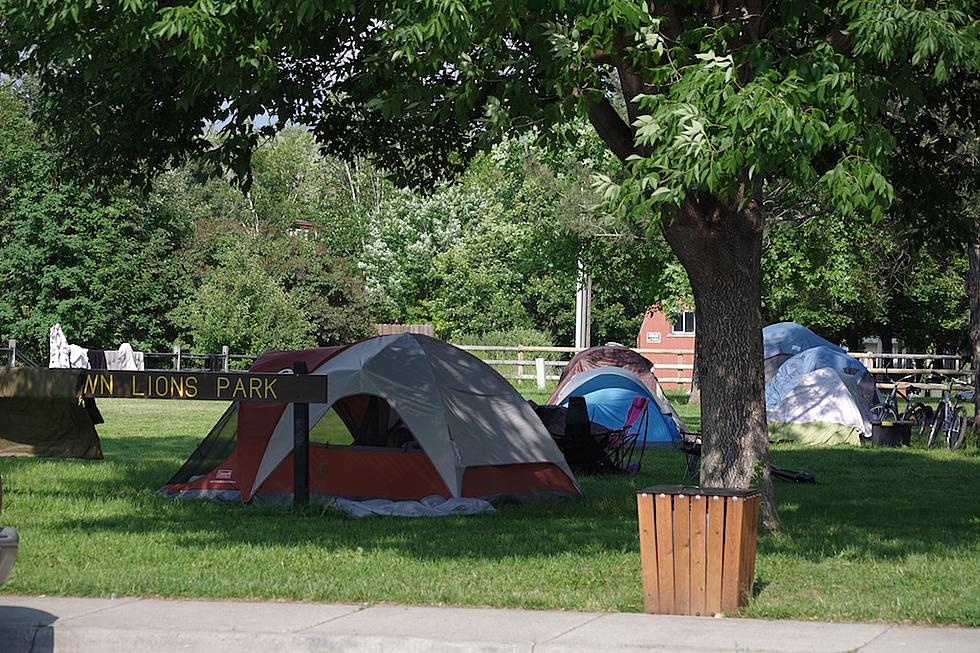
Cold feet: Missoula City Council backs off ban on overnight camping in parks
Martin Kidston
(Missoula Current) From “swinging at midnight” to drug needles cast across city parks and sexual deviancy, the debate over closing Missoula's city parks to overnight camping drew a wide range of stories and opinions into late Monday night.
Most members of City Council changed their votes after a flurry of amendments and hours of debate, supporting the ban at one point and postponing it at another. In the end, the issue was tabled.
"I don't see the urgency passing this tonight," said council member Mirtha Becerra. "This will directly affect what solutions we come up with."
Banning overnight camping in city parks was once billed as an effort to protect children, give parents piece of mind and to comply with a Ninth Circuit Court decision. It was of such urgency that the city held a press event in early June to declare an emergency around urban camping.
But any serious threat once allegedly posed to the public and the city's youth by transient and homeless campers in the city's parks vanished as the debate wore into Monday night.
"There's a much larger discussion to have regarding this topic in our community," said council member Gwen Jones. "We're still under the emergency ordinance for the next couple of months. Everyone should be able to use our parks safely, and that was compromised this spring. There's a lot of balancing, and we need to figure out how to make it work."
Rapidly changing opinions
Postponing the vote until late August places the debate over the issue into the budget season, where homeless advocates would like more money to support their programs. Already, they're lobbying the city to divert funds from one department to another, or to raise taxes to check items off their wish list.
Council member Heidi West was among a council minority to keep her vote consistent and to oppose the push to send the camping ban in city parks back to committee.
“The quickest way to destroy the vibrancy, longevity and resiliency of a community is to become hyper-focused on a single issue at the expense of all other issues,” she said. “Missoula is more than a housing crisis.”
The City Council hasn't debated jobs and economic growth with the same vigor in more than a year. Rather, it has fixated on homelessness, shelters and subsidized housing as its top issues.
Mike Robinson, a Missoula citizen, said he has volunteered for local nonprofits and believes that “everybody deserves a place to live.” But that has limits, he added.
His son will no longer bike down the Kim Williams Trail. People are now scared to walk along the many local trails, and that wasn't always the case, he said.
“I want people to have a place to live. But that's not how it is now – it's not working. It's scary,” he said. “It's scary for kids. What's along the river right now isn't sustainable. It's not sustainable for my kids. It's not sustainable for people who live here.”
Those opposed to a camping ban gave little mention to families or children but rather, they suggested homeless campers and transients deserved better from Missoula. That included Jill Bonny, the executive director of the Poverello Center, who opposed the ordinance banning camping in city parks.
Her organization has received millions of dollars in taxpayer support in recent years, but she suggested the community “can do better.” She urged the City Council to postpone its vote, which it did.
“Let's pause a minute and take a look at this before we make it permanent,” Bonny said. “People are drinking from the river because they don't have any other water to drink. They can't call 9-1-1 because they don't have any cell phones. Let's find a solution for people and table this for now.”
The funding allocated by taxpayers to provide shelter, housing and other amenities for the homeless got little mention on Monday night as well.
Instead, opponents called for services they believe could make a difference for the homeless population including free camping spaces, free needle drops, free cellphones, free trust services, free showers, free shelter, rehabilitation, and simply “being left alone to exist.”
Opposition to the ban on overnight camping was led by council members Kristen Jordan and Daniel Carlino.
“We're spending a huge amount of money pushing people from place to place,” said Carlino. “We're paying for this one way or another. We should spend it providing people bathrooms and a place to stay.”
Some council members have suggested the possibility of opening one or more city parks to homeless camping, but they haven't said what neighborhood that would be.
The downtown area has been suggested as option, including the Riverfront Triangle, where redevelopment and economic opportunity was once eyed as a priority.
“These are our constituents, and they deserve a seat at the decision-making table,” Jordan said of the homeless population. “We need more time to consider all the moving parts of this issue.”
